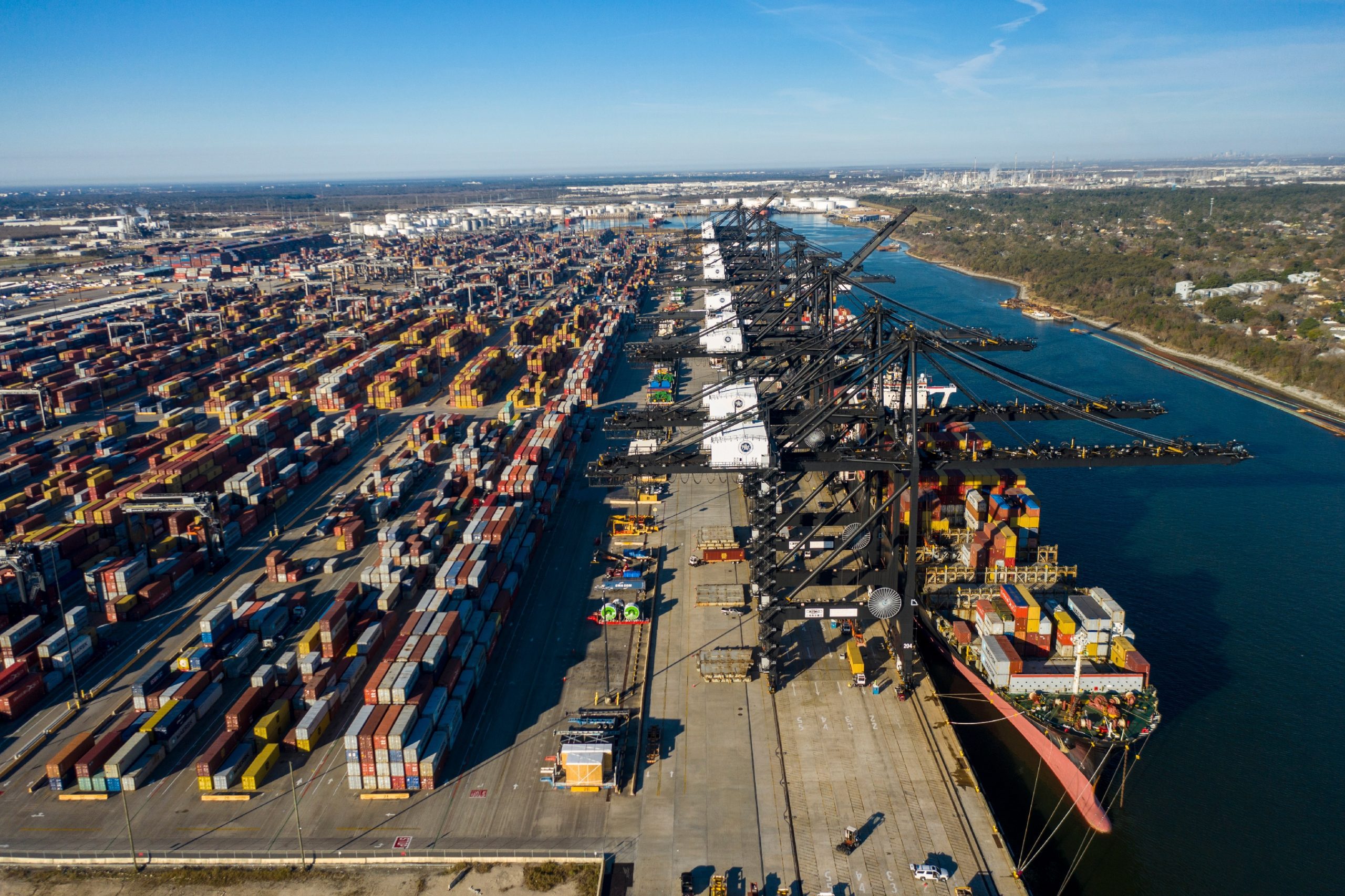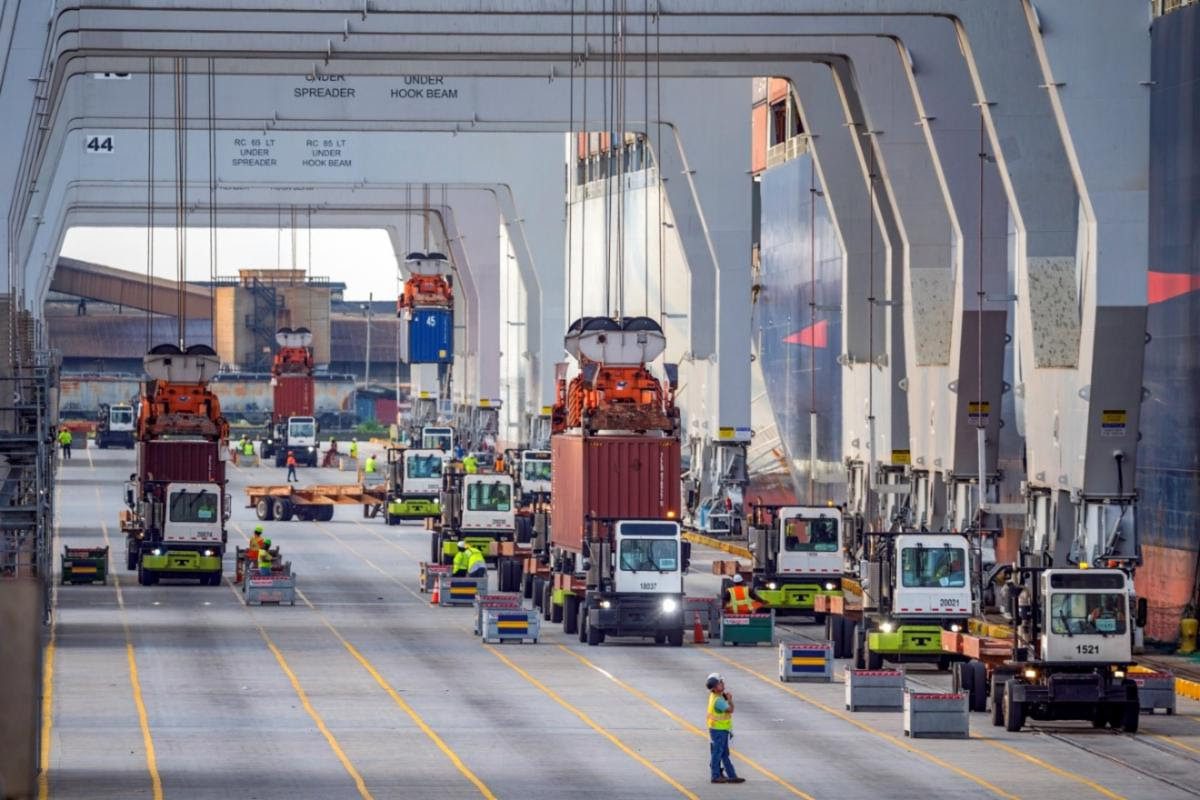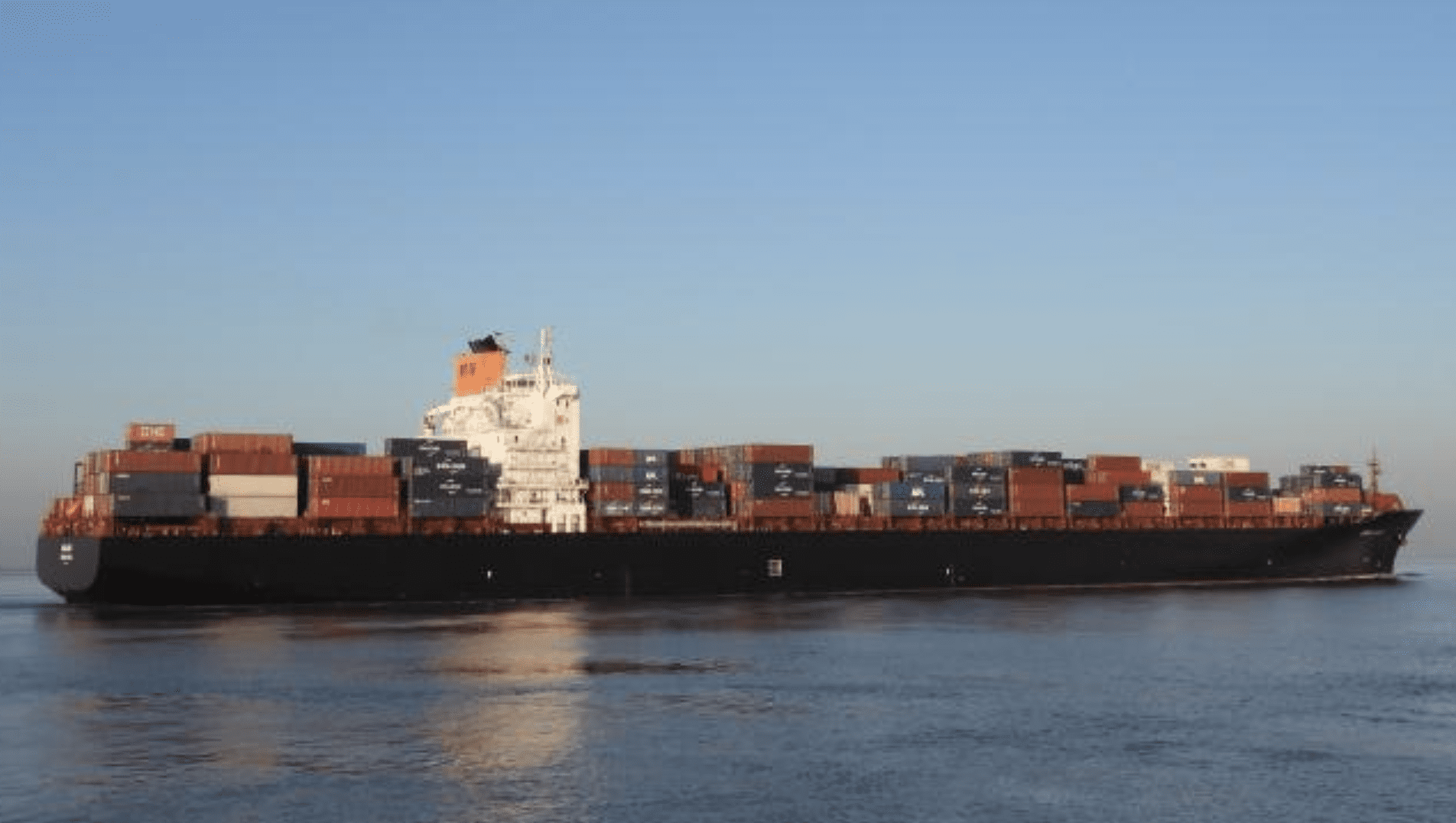A potential coastwide strike at Atlantic and Gulf Coast container ports could disrupt U.S. supply chains and impact the upcoming holiday shopping season, industry experts warn. The International Longshoremen’s Association (ILA) and United States Maritime Alliance (USMX) are locked in contentious negotiations over a new Master Contract, with the current agreement set to expire on September 30, 2024.
If no agreement is reached, the ILA plans to strike beginning October 1, affecting 45,000 dockworkers at container ports from Texas to Maine. With less than five days remaining before the ILA’s contract expiration, the maritime industry braces for impact.
The labor dispute comes at a critical time for retailers and consumers preparing for the holiday season.
“The impact of a strike now is going to be way more impactful for Christmas and not next week, or the week after. Those ships will take longer to do their round and come back and that creates a backlog,” said Stamatis Tsantanis, CEO of Seanergy Maritime and United Maritime, which combined operate 25 dry bulk ships with over 4 million in dwt.
Tsantanis adds, “This is the worst possible time for a port strike since it will potentially affect the Christmas shopping season, because there might be shortages or things may not arrive in time.”
Eric Clark, portfolio manager at Accuvest Global Advisors, predicts severe economic repercussions if the strike extends beyond a week: “This certainly has the possibility of being a very bad outcome,” said Clark. “From our perspective, any strike that lasts more than 1 week could cause goods shortages for the holidays.”
Clark is also concerned about the inflation risk from a strike, noting that “the Fed can’t fix the inflation problem that would be created from these stoppages.”
“We could get the kind of inflation for 6 months similar to or worse than peak inflation levels a year ago,” he adds.
“Ocean carriers are estimating that every day of strike will lead to 5 to 10 days of cargo building up,” Ryan Peterson, CEO of Flexport, a leading supply chain management and logistics platform, wrote on X. “If it only last for a few days, it’s probably a non-issue in the scheme of things. But if this lasts for more than a week or two, we will see months of capacity shortages the likes we haven’t seen since Covid.”
“If the strike lasts for more than a month, we are talking about depression level shortages rippling across the entire US economy and outward from there to the wider world,” Peterson added.
Judah Levine, Head of Research at Freightos, warns of the far-reaching consequences: “A prolonged shutdown would result in West Coast congestion and delays, contributing to additional upward pressure on rates. It would also eventually lead to capacity and empty container shortages at origin ports in Europe and Asia, spreading the impact to lanes out of those hubs.”
In anticipation of the strike, East Coast ports are extending operating hours and setting strict deadlines for container movements. Meanwhile, ocean carriers have suspended new export bookings and introduced substantial surcharges, ranging from $400 to $3,000 per forty-foot equivalent unit (FEU) for East Coast-bound containers in October.
The Federal Maritime Commission (FMC) has issued a stern warning to carriers and operators against imposing excessive detention and demurrage fees during the strike, a move aimed at protecting shippers from unfair charges reminiscent of those incurred during pandemic-related port congestions.
The potential strike highlights ongoing tensions between labor unions and port operators over issues of automation and efficiency. Businesses and consumers alike are bracing for possible disruptions to the supply chain and increased costs during the crucial holiday shopping period.
Last week, a coalition of 177 trade associations appealed to President Biden for immediate intervention, warning of “severe economic consequences” if a deal isn’t reached.
While the White House faces mounting pressure to intervene, the administration has expressed reluctance to invoke the Taft-Hartley Act to end the strike. However, with the economic impact estimated at several billion dollars per day, the government may be forced to reconsider its stance as the situation unfolds.
Unlock Exclusive Insights Today!
Join the gCaptain Club for curated content, insider opinions, and vibrant community discussions.

 Join The Club
Join The Club











